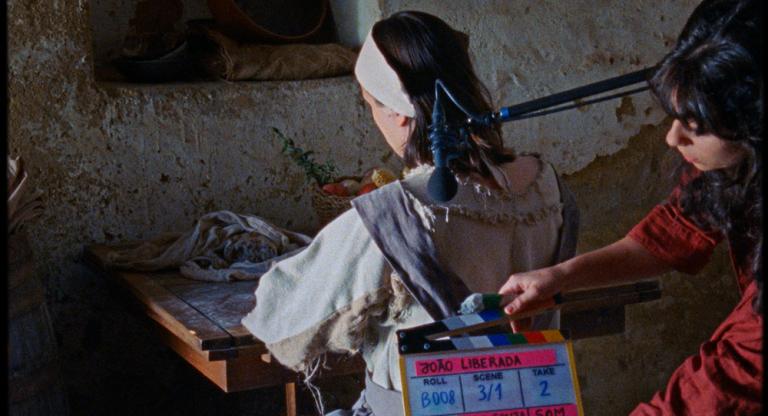An American doctor diagnoses feeble sugar magnate Roberto Hurtado (Gilberto “Fly” Forero) with a rare disease that requires massive daily blood transfusions. He provides Hurtado’s son, the perpetually scowling Adolfo (Luis Alberto García), with a very specific set of instructions for sourcing the blood: it can only be derived from young, white boys. Filmmaker Luis Ospina devises a modern vampire film in which the horror does not arise from supernatural foundations; rather, from the frightful conditions associated with capitalist expansion that Marx described as vampiric, as film scholar Dr. Juana Suárez explores in her book Cinembargo Colombia. It’s no coincidence that the film begins with an American instructing a Colombian in English as to how to fix a lethal problem before vanishing from the picture entirely. These are the remedies Americans provide to Latin America: suck your own blood to prolong your state of decay.
Pura Sangre marks Ospina’s first feature-length film, following a series of short documentaries rebelling against the portrayal of his nation in the media. Alongside Carlos Mayolo, his cinephilic childhood friend, and writer Andrés Caicedo, whose sudden suicide remains contested, Ospina was a founding member of the Grupo de Cali and the resultant Caliwood film movement in the 1970s. Alongside artists like Karen Lamassonne, whose art direction lends Pura Sangre its Tropical Gothic look, Grupo de Cali pushed against the veracity championed by Third Cinema filmmakers at the time, employing the lens of genre to dispute the presentation of any objective truth about Colombia.
It is this indirect approach to truth-telling, with an emphasis on subjectivity, that informs the many entangled source narratives at play in Pura Sangre. Ospina invokes “El Monstruo de los Mangones,” the name given to an unidentified serial killer associated with the kidnapping and murder of young boys in Cali throughout the 1960s and ’70s. Also at play is the fear of mestizaje (those of mixed race) in the sugar magnate’s’ hematophagy, alluding to the politics of oligarchic power that’s handed down from one wealthy white man of Spanish descent to the next. The encroachment of capitalism sees vampiric feudal sugar-lord Hurtado attempting to prolong his life, and his economic power, by any means necessary. Meanwhile, his son’s avarice leads him to break from his father's local dependency on sugar and look to transnationally deal both sugar and the other white powder of the region: cocaine. As these threads tangle themselves into a single rubber-band ball of violent stories, Ospina’s narrative reveals social dynamics that direct reporting cut out.
Pura Sangre screens tonight, September 26, at Anthology Film Archives as part of their retrospective of Karen Lamassonne.



